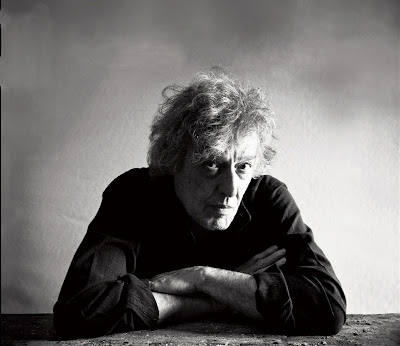Tom Stoppard on The Hard Problem
By Simon Hodgson
After 17 productions at A.C.T., Tom Stoppard has become part of Geary Theater lore. In these works, he has explored a wide range of topics, from philosophical paradoxes, political dissidence, and evolutionary biology to murder mysteries and landscape gardening. In between rehearsals for The Hard Problem—which runs through November 13—we caught up with Stoppard to talk about consciousness, computers, and chaos.
In The Hard Problem, you focus on chaos and rationality, which affect both the stock market as well as Hilary’s intellectual exploration into consciousness. Why?
For a long time during my intelligent years, from about 1950 to 1995, the computer was considered to be a paradigm for the human brain. A lot of people still think it is, and I found that I was resisting the idea.
It seemed to me that the fact that the market behaves irrationally from time to time was an indication that it wasn’t controllable through maths and algorithms, and that human behavior was dimension which couldn’t be captured by maths. So I can see where, in a strange Venn diagram, a story about consciousness would overlap with a story about somebody who was trying to win in the marketplace.
Another character in the play, Amal, takes a journey from complete belief in an algorithmic view of brain activity to a kind of realization that, as he puts it in the play, the mathematical models are out of whack because one doesn’t know how to build a stupid computer. “Stupid” is just his way of saying that the computer can’t quite capture spontaneity and irrationality as it’s exhibited in human nature.
Are there any characters in The Hard Problem that you feel close to?
I definitely feel close to Hilary. Or she is close to me. Particularly in terms of her questioning what is supposed to be a given, and her questioning this particular given, that there’s no more to us than meets a scanner.
What’s your own take on the whole consciousness debate?
The predictable response is that the play is the answer to your question. I have a habit of writing plays in which two points of view are being argued, and it’s part of my job to try and give as good an argument as I can come up with for the side I don’t really agree with.
There’s always a character’s viewpoint that is closer to mine than other opposing viewpoints. But at the same time, my basic understanding is that plays are a storytelling form and it’s no good having this kind of point of view if you don’t have a story.
The Hard Problem runs through November 13 at The Geary Theater. Click here to purchase tickets. To read more of this interview with Stoppard, or to learn more about the hard problem, coincidence, and the limitations of algorithms, purchase Words on Plays.
After 17 productions at A.C.T., Tom Stoppard has become part of Geary Theater lore. In these works, he has explored a wide range of topics, from philosophical paradoxes, political dissidence, and evolutionary biology to murder mysteries and landscape gardening. In between rehearsals for The Hard Problem—which runs through November 13—we caught up with Stoppard to talk about consciousness, computers, and chaos.
 |
| Tom Stoppard. Photo by Matt Humphrey. |
For a long time during my intelligent years, from about 1950 to 1995, the computer was considered to be a paradigm for the human brain. A lot of people still think it is, and I found that I was resisting the idea.
It seemed to me that the fact that the market behaves irrationally from time to time was an indication that it wasn’t controllable through maths and algorithms, and that human behavior was dimension which couldn’t be captured by maths. So I can see where, in a strange Venn diagram, a story about consciousness would overlap with a story about somebody who was trying to win in the marketplace.
Another character in the play, Amal, takes a journey from complete belief in an algorithmic view of brain activity to a kind of realization that, as he puts it in the play, the mathematical models are out of whack because one doesn’t know how to build a stupid computer. “Stupid” is just his way of saying that the computer can’t quite capture spontaneity and irrationality as it’s exhibited in human nature.
Are there any characters in The Hard Problem that you feel close to?
I definitely feel close to Hilary. Or she is close to me. Particularly in terms of her questioning what is supposed to be a given, and her questioning this particular given, that there’s no more to us than meets a scanner.
What’s your own take on the whole consciousness debate?
The predictable response is that the play is the answer to your question. I have a habit of writing plays in which two points of view are being argued, and it’s part of my job to try and give as good an argument as I can come up with for the side I don’t really agree with.
There’s always a character’s viewpoint that is closer to mine than other opposing viewpoints. But at the same time, my basic understanding is that plays are a storytelling form and it’s no good having this kind of point of view if you don’t have a story.
The Hard Problem runs through November 13 at The Geary Theater. Click here to purchase tickets. To read more of this interview with Stoppard, or to learn more about the hard problem, coincidence, and the limitations of algorithms, purchase Words on Plays.

